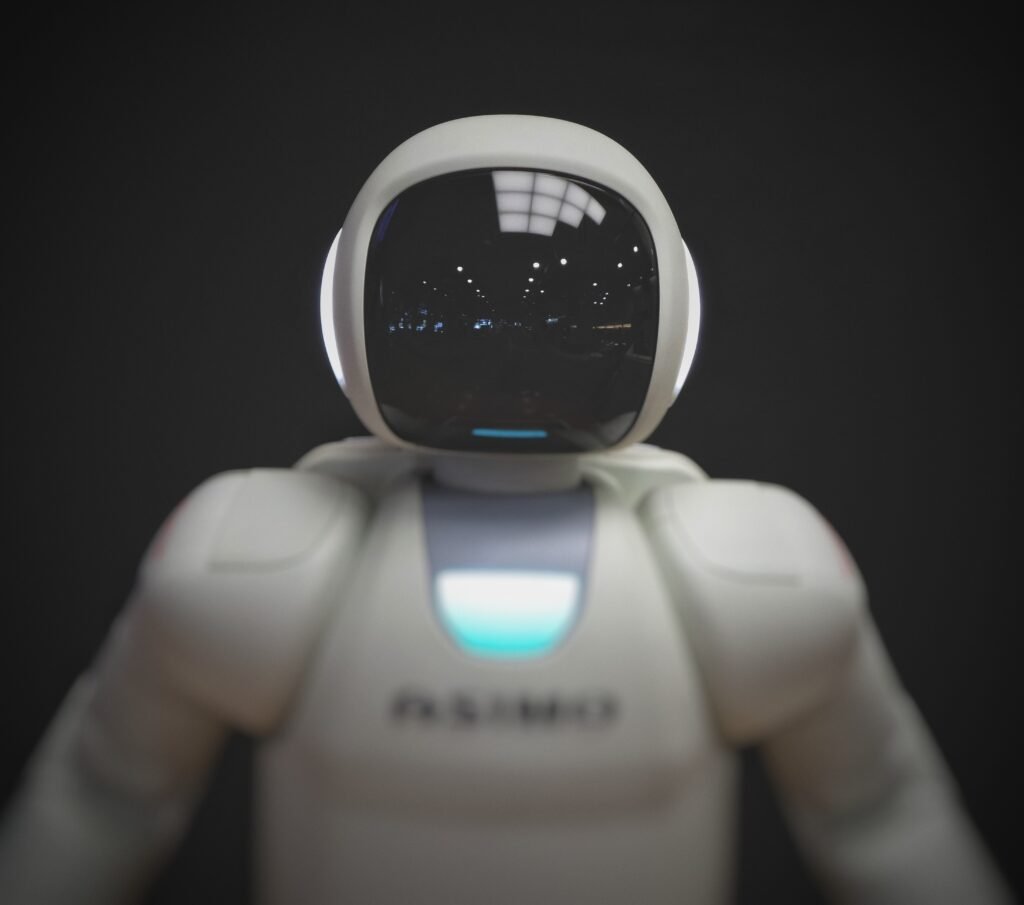In this article, we explore the impact of artificial intelligence on job roles and ponder whether AI will indeed replace human workers. With advancements in technology and the increasing capabilities of AI systems, it is important to assess the potential implications for employment. While some argue that AI will create new job opportunities and enhance productivity, others express concerns about job displacement and the need for upskilling. By examining both perspectives, we can gain a clearer understanding of the complex relationship between artificial intelligence and the future of work.
The Impact of Artificial Intelligence on the Job Market
Artificial Intelligence (AI) is revolutionizing the way we live and work, and its impact on the job market is undeniable. While automation has the potential to displace certain jobs, it also creates new opportunities and changes the composition of the workforce. In this article, we will explore the various ways AI is influencing the job market and discuss how individuals and society can prepare for the future of work.
Automation and Job Displacement
One of the main concerns surrounding AI is the fear that it will replace human workers. While it is true that certain tasks can be automated, resulting in job displacement, this does not mean that AI will completely eliminate the need for human labor. Instead, it is expected to shift the nature of work, requiring humans to take on more complex and strategic roles.
Automation is likely to have the biggest impact on jobs that involve repetitive and routine tasks. For example, in the manufacturing industry, AI-powered robots can perform tasks that were traditionally done by humans on assembly lines. While this may lead to job losses in certain areas, it also opens up opportunities for workers to acquire new skills and take on more advanced roles in areas such as programming and maintenance of these robots.

Job Creation through AI
Contrary to popular belief, AI also has the potential to create new jobs. As technology advances, there is a growing demand for AI experts who can develop and maintain these systems. Additionally, the implementation of AI technology often requires a team of professionals with diverse skills, ranging from data analysis to software development. This means that while some jobs may be replaced, new ones will emerge to support the integration and utilization of AI in various industries.
Moreover, AI has the ability to enhance productivity and efficiency, leading to economic growth. As businesses adopt AI solutions, they can streamline processes, reduce costs, and provide better products or services. This, in turn, leads to expansion and the need for more human resources to manage and support these growing operations.
Changes in Workforce Composition
The integration of AI technology in the job market also brings about changes in the composition of the workforce. While certain jobs may be at risk of being automated, there are sectors that require the human touch and emotional intelligence that machines lack.
For example, in customer service, while chatbots and automated systems can handle basic inquiries, there will always be a need for human agents who can empathize with customers and provide personalized assistance. This shift towards more human-centric roles means that individuals need to adapt and develop skills that complement AI technology.
Additionally, there is a growing demand for hybrid roles that require both technical expertise and interpersonal skills. This includes positions like data scientists, who not only need to analyze and interpret data but also communicate their findings effectively to stakeholders. As AI becomes more prevalent, these hybrid roles will become increasingly valuable in bridging the gap between technology and human interaction.

Industries Affected by AI Technology
AI technology has the potential to impact various industries, transforming the way businesses operate and the skills required for success.
Manufacturing
The manufacturing industry has been at the forefront of automation for years, and AI is further accelerating this transformation. AI-powered robots and machines can perform tasks with precision and efficiency, reducing the need for manual labor in assembly lines. However, this also presents an opportunity for workers to acquire new skills in programming and maintenance of these AI-powered systems.
Retail and Customer Service
Retail and customer service industries are also experiencing significant changes due to AI technology. Chatbots and virtual assistants are increasingly being used to handle customer inquiries, freeing up human agents to focus on more complex and specialized tasks. AI can also analyze customer data to personalize recommendations and improve the overall shopping experience. In this industry, the key is to strike the right balance between automation and human interaction to provide the best customer service.
Transportation and Logistics
In the transportation and logistics sector, AI is transforming operations and optimizing efficiency. Self-driving vehicles and AI-powered route optimization systems are being used to improve delivery processes and reduce costs. While this may lead to job losses for drivers, it also opens up opportunities for individuals to work in the development and maintenance of these AI technologies.
Finance and Accounting
The finance and accounting industry is not immune to the influence of AI. Automated algorithms can analyze large volumes of financial data, detect patterns, and make predictions more accurately than humans. This enables faster and more informed decision-making in areas such as risk assessment and investment management. However, AI can never entirely replace the judgment and expertise of financial professionals in complex and nuanced situations.
Healthcare
AI technology is making significant strides in the healthcare industry, revolutionizing diagnostics, treatment, and patient care. AI algorithms can analyze medical images, detect abnormalities, and aid in diagnosis. It can also assist in the development of personalized treatment plans based on patient data and medical research. While AI can enhance the efficiency and accuracy of healthcare processes, healthcare professionals will continue to play a crucial role in patient interaction and decision-making.
Legal Profession
In the legal profession, AI-powered tools are being utilized to streamline and automate tasks such as legal research and contract analysis. This allows legal professionals to focus on more complex and strategic aspects of their work. Additionally, AI can assist in predicting legal outcomes based on past cases, aiding lawyers in building stronger arguments and making informed decisions. However, the interpretation of the law and the ability to navigate the complexities of the legal system will remain in the hands of human lawyers.
Creative Fields
AI is also making its way into the creative fields, challenging the traditional notion that creativity is solely a human attribute. AI algorithms can generate music, artwork, and even written content. However, while AI can produce outputs that mimic human creativity, it lacks the emotional and contextual understanding that humans possess. Therefore, there will always be a place for human artists, writers, and designers who can bring unique perspectives and experiences to their work.
Education
AI technology is also being integrated into the education sector, transforming the way we learn and teach. Adaptive learning platforms can tailor educational content to individual student needs, providing personalized learning experiences. AI-powered grading systems can provide immediate feedback to students, helping them improve their performance. However, human educators will continue to play a critical role in imparting knowledge, fostering critical thinking skills, and providing guidance and support to students.
The Balance between Humans and Machines
As AI becomes more prevalent in the workforce, striking a balance between humans and machines becomes essential. While AI can automate certain tasks and enhance productivity, there are areas where the human touch and judgment are irreplaceable.
Complementary Roles and Skill Enhancement
AI technology should be seen as a tool to enhance human capabilities rather than a replacement. By automating repetitive and routine tasks, individuals can focus on more stimulating and complex work that requires creativity, critical thinking, and problem-solving skills. This allows for greater job satisfaction and personal growth, as individuals gain the opportunity to develop and apply their unique human skills.
Human-Machine Collaboration
The future of work lies in human-machine collaboration. By leveraging the strengths of both humans and AI, organizations can achieve optimal results. Humans excel in areas such as empathy, emotional intelligence, and complex decision-making, while AI excels in tasks that require speed, scalability, and data processing. It is important to foster a collaborative environment where humans and machines can work together seamlessly, leveraging each other’s strengths to achieve shared goals.
Potential for Human Error and Ethical Considerations
While AI technology offers numerous benefits, it is not without its challenges. AI systems are only as good as the data they are trained on, and biases within the data can lead to flawed outcomes. Additionally, there is always the potential for human error in designing and implementing AI algorithms. Therefore, it is crucial to ensure transparency, accountability, and ethical considerations in the development and use of AI technology.

Preparing for the Future of Work
With the rapid advancement of AI technology, it is important for individuals and society to prepare for the future of work. Here are some strategies to navigate the changing landscape:
Upskilling and Lifelong Learning
As the job market evolves, individuals need to continuously upskill and adapt to stay relevant. This involves acquiring new knowledge and skills that complement AI technology. Lifelong learning, whether through formal education or online courses, can help individuals stay competitive and agile in the face of changing job requirements.
Job Transition and Reskilling Programs
For those whose jobs are at risk of being automated, job transition and reskilling programs can provide the necessary support to explore new career paths. Governments and organizations should invest in retraining initiatives that equip individuals with the skills needed for emerging roles. This helps mitigate the negative impact of job displacement and ensures a smooth transition into the future of work.
Policy and Regulatory Frameworks
To effectively harness the benefits of AI technology while mitigating potential risks, policy and regulatory frameworks need to be in place. This includes guidelines for data privacy, security, and ethical considerations in AI development and usage. Governments, industry leaders, and experts should collaborate to establish standards and regulations that promote responsible and fair AI practices.
Societal Adaptation and Universal Basic Income
As the job market undergoes significant changes, it is important for society to adapt and support those affected by job displacement. Universal Basic Income (UBI) is an approach that has gained traction as a potential solution. UBI ensures that every individual receives a basic income regardless of employment status, providing a safety net during times of transition and enabling individuals to invest in their own upskilling and entrepreneurial endeavors.
In conclusion, while the impact of AI on the job market is significant, it is not a matter of AI taking jobs away from humans, but rather a transformation of work. Automation may lead to job displacement in certain areas, but it also creates new opportunities and changes the composition of the workforce. By embracing AI technology, upskilling, and fostering human-machine collaboration, individuals and society can navigate the future of work with confidence and adaptability. The key lies in leveraging the strengths of both humans and machines to achieve optimal outcomes and a harmonious balance in the evolving job market.





